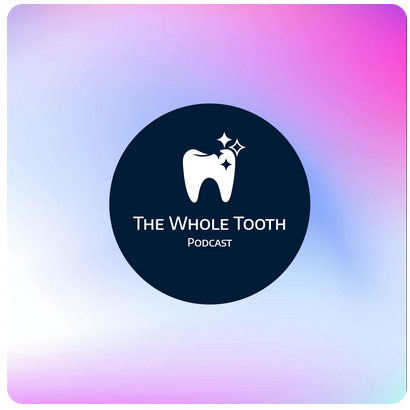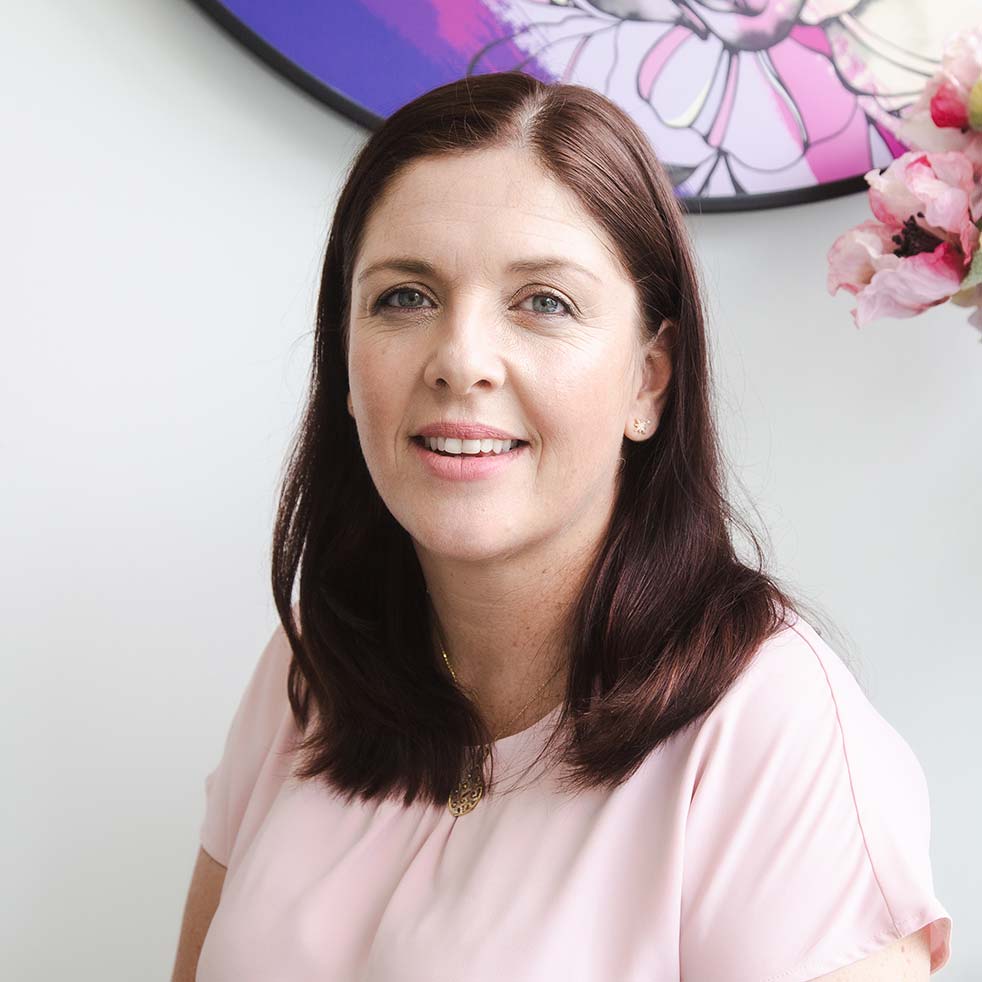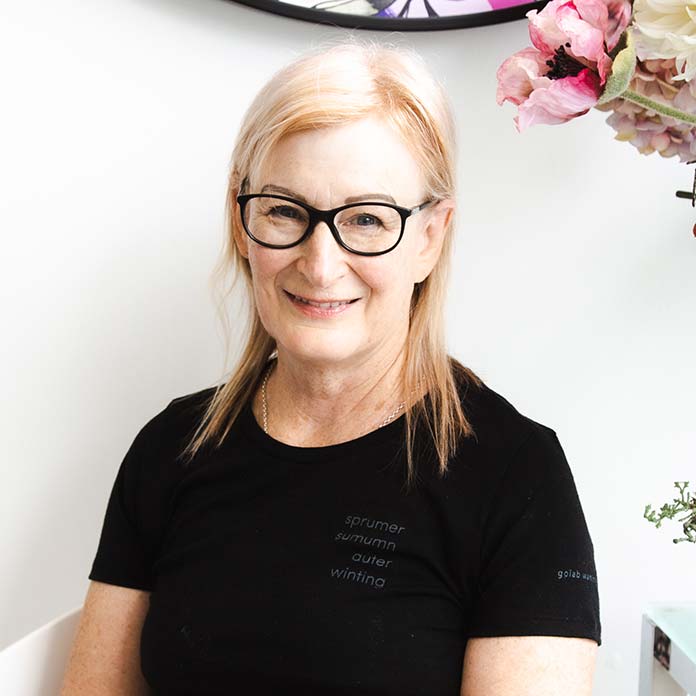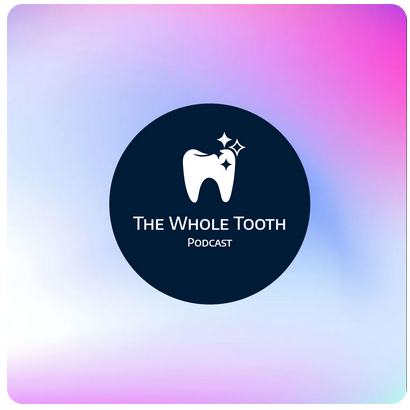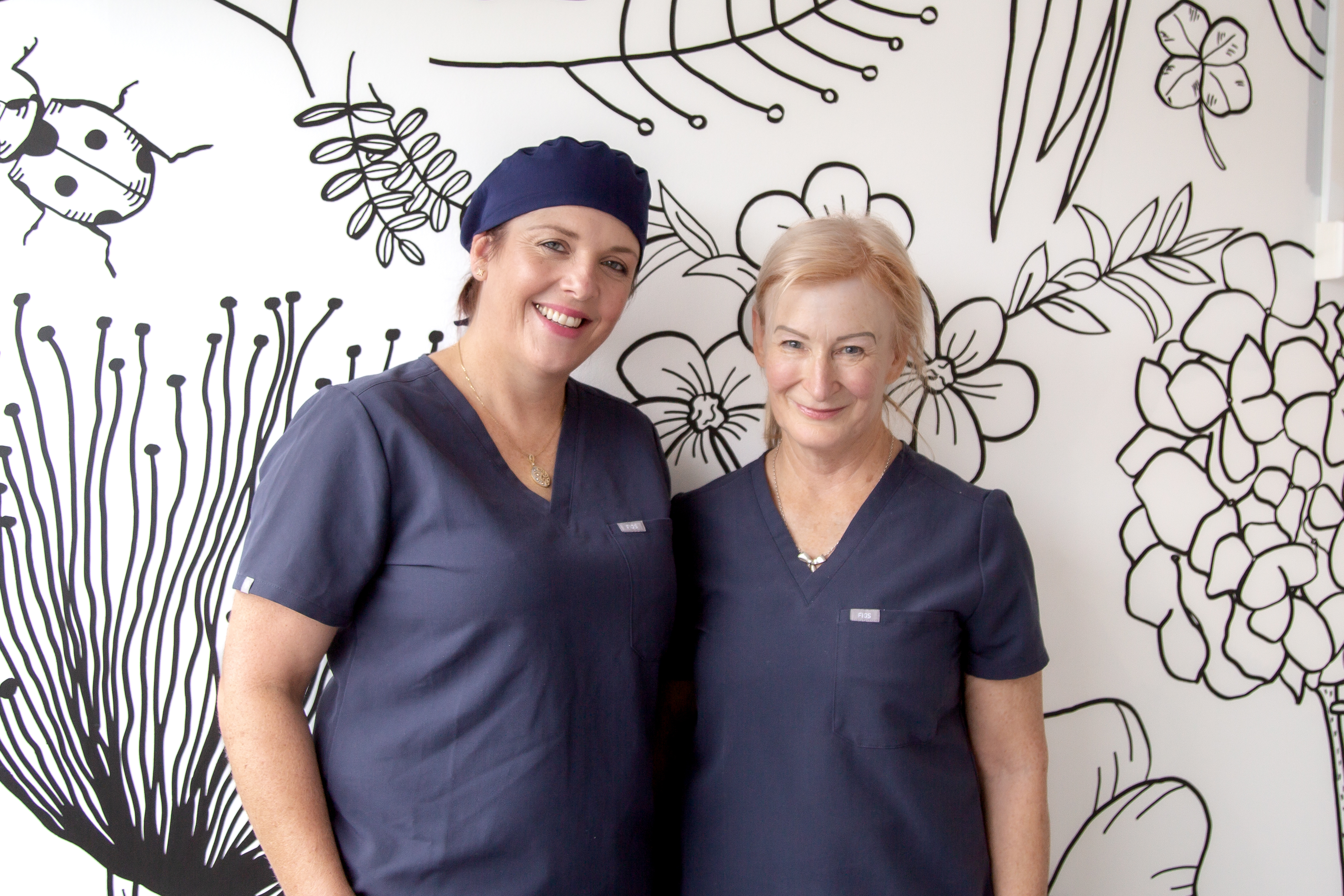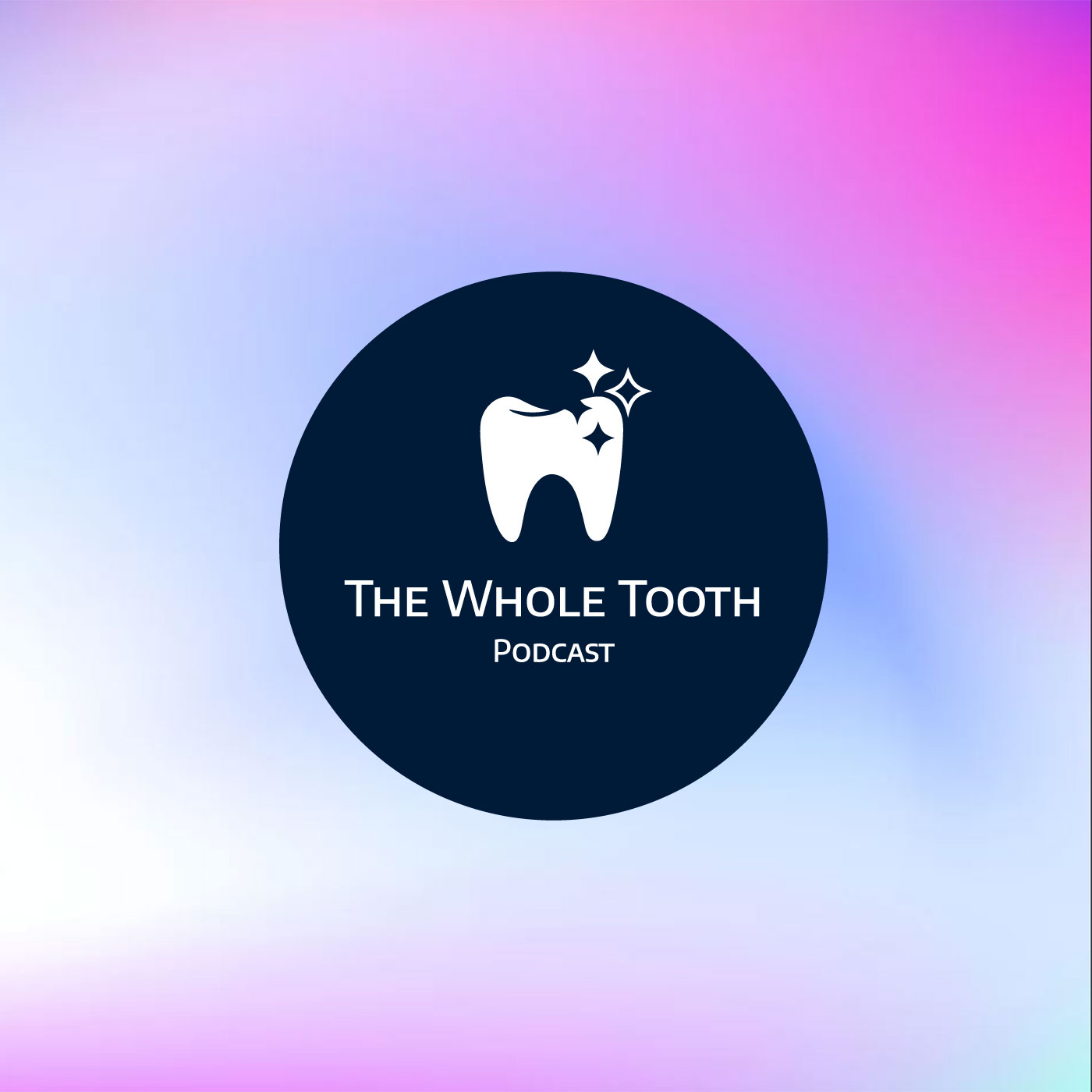Episode Transcript
Speaker 1 (Becky) 00:00:04 Kia ora, and welcome to The Whole Tooth Aotearoa/NZ, the show that is made by oral health professionals for oral health professionals. We'll bring you the kaupapa of the oral health profession in Aotearoa to investigate the tooth, the whole tooth, and nothing but the truth. I'm Becky Ahmadi, and with me today is Dr. Bethy Turton. In today's episode, we will talk to Bethy about novel models of oral healthcare delivery to manage the burden of dental disease and a networking approach to shifting perception. We'll discuss the ins and outs of these today and offer listeners a real treat.
The Whole Tooth Aotearoa/NZ is yet to be sponsored by any cutting edge dental company or organization. This could be the opportunity for you. Call us on 0210355456.
Our guest today is Dr. Bethy Turton, an Assistant Professor at Henry M Goldman School of Dental Medicine at Boston University. But don't let that mislead you! Bethy has spent the last decade living in Southeast Asia where she set up and tested care pathways for children in low resource settings.
Tēna koe Bethy, thank you so much for joining us,
Speaker 2 (Dr Turton) 00:01:12 Tēna koe. Thanks for having me on and for having a chance to have a good old chat. It's always a pleasure to catch up.
Speaker 1 ( Becky)00:01:19 It is always a pleasure. Now, bit of a backstory. Bethy and I have known each other for a long time and, we did live together for a period of time and had a good flatting experience down in old Dunedin. And, um, we were at the dental school at the same time for a period of time. So yeah, we've had a long history of friendship and professional allegiance. So let's go <laugh>.
Speaker 2 00:01:40 Let's do it.
Speaker 1 00:01:42 All right. I love this first topic. This is something that, um, has been rumbling around in my study group all year about triaging this novel approach to, to care, to attempt to manage this disease burden in Aotearoa. It's no, mystery or secret at the moment that oral health is at crisis point in Aotearoa. What's your thoughts there, Bethy?
Speaker 2 00:02:04 Yeah, I mean, the numbers don't lie. Um, and the most devastating part is that, you know, oral disease doesn't happen on a smooth gradient. It doesn't distribute itself equally across the population. Even where people kind of comport to a gradient where, you know, certain subgroups groups have severe disease, it's actually not a greater, it's more like a cliff. Um, you know we're not climbing up a hill to more severe disease experience, it's where people are dropping off the side of the cliff, um, with experiences of pain and suffering. And, you know, that's just actually kind of devastating. And especially in a well-resourced country where we are supposed to have, um, you know, complex delivery of care. We're still seeing that there are a lot of people both going without care, but more importantly, going without those supports that they need to achieve ideal oral health.
Speaker 2 00:02:58 And, um, you know, obviously I have a bit of a skewed lens towards, um, looking at a lot of my experiences through what I've, um, seen in Cambodia over the last number of years. And when I showed up there for the first time in 2009, it's, it's pretty easy to say that it was kind of overwhelming. Um, yeah, I think all of us as health professionals have seen kids with nine or 10 open lesions and, um, we think, okay, you know, this kid, we're just gonna work through, we're gonna work it through, we're gonna get it done, we're gonna get done. But when the next kid and the next kid and the next kid and the next kid, the next kid, next kid is showing up with a severe burden of disease, then we just can't, you know, trying to give what we think is ideal care to one or two kids actually compromises our ability to give the highest attainable care to all of the children that are, that are within our care.
Speaker 2 00:03:52 And so, um, we kind of went through somewhat of an evolution. You know, actually my, the experience was, okay, alright team, let's get in there and do as much as we can. But the reality is, as much as we can looks like an extraction here and, you know, a deep restoration there, which may or may not work, and, um, you know, that leaves a large number of open lesions in the mouth that haven't been treated while you rock onto the next place or, or back home. Um, and so we thought, okay, okay, okay, k team, team, team, we are gonna do prevention. Prevention is, is the key. Um, so we like went hard out and we, you know, put sealants on 60,000, um, children. Um, but you know, like those kids we're putting sealants on those kids, but they already had two abscesses or three abscesses in their mouth.
Speaker 2 00:04:44 So yeah, okay. We we're able to demonstrate a reduction in symptoms two years later, but what about all the suffering that they're experiencing on the day that we meet them? So, um, so, you know, where do we, where do we go from there? And um, what we arrived at was, um, a triage system where we looked at some of the key epidemiological behaviors within the population and picked off some indicators that, um, either a medical professional or a dental professional can identify. And that allowed us to gradiate the care from level one, level two and level three. Um, and level three being like, um, full restorative care with drills and suction and level one being silver diamine fluoride. So when I think, you know, when I'm kind of juxtaposing my life between Cambodia and New Zealand and the us you know, the questions in my mind, uh, let's look at the epidemiological profile. We know it's gonna be skewed, but exactly what are those indicators that are gonna differentiate one severe group from another severe group in terms of disease experience, and how can we use those indicators to be smart about how we use our resources? So, um, yeah, that's a bit of a, you got me on a bit of a, a special topic there, Becky, so I apologize. I I barely took time to breathe, your thoughts.
Speaker 1 00:06:03 I did note down a number of things because the eloquent way of being able to describe the actual issues, um, and then provide solutions is, uh, what we need in Aotearoa at the moment where I think we're sitting in a bit of a time of, um, unsure being unsure about what's happening for us in the publicly funded oral healthcare space. And seeing that we need something, we need something that's going to be able to allow the practitioners, the few practitioners that we have left that are in the publicly funded, um, community oral health service, be able to, um, have sustainable work practices and be able to last the distance and then also meet the disease burden need and, um, have some form of success or some form of improvement of oral health as opposed to just backtracking or, um, being overwhelmed by the great, um, disease that is present at the moment. Um, something else I thought was interesting, your 60,000 seals <laugh>, that when you changed your, that paradigm to I must repair and restore everything in that mouth at this point in time for my clinical satisfaction or somewhat or professional expectation, um, as opposed to what can we do at this time with, with what this person needs, with the resources that we have, with our abilities, and with the long game in mind. So yeah, that's, that's something I'm very interested in this idea of, um, an absolute paradigm shift to the way we approach traditional dentistry.
Speaker 2 00:07:43 Yeah. And I think, you know, um, it's really great that we have had, you know, a sustained, um, set of resources that have come through the, you know, school or health service, and that's, that's really good. But I think as we come to this juncture, we're finding that the machinery, you know, we need to shift gear in the machinery and the machinery's just a little bit heavy to just shift gear just based on only relying on the health system to do it for us. And, you know, we are going through a humongous gigantic change, which is greater than we have in many decades. Um, and so I guess it produces both an opportunity, but should it be missed, you know, it becomes a greater barrier on the other side of this transition. Um, and so I do think that there is gonna have to be some space to, um, to kind of go out on a limb and we may find we have to do things that are a little bit uncomfortable with regards to testing out, um, different ways of triaging, of different ways of getting out there, different, you know, hopefully the silver diving fluoride will become available, um, in the next six or 12 months.
Speaker 2 00:08:51 Um, but ultimately, um, we can't really sit back and just wait for the health system to, um, correct itself, which it may or may not happen. Like I'm not saying it will never happen, and there's some really amazing people working in that system and doing some phenomenal work. Um, however, we, you know, we've all gotta get our shoulder in, and it's not just about putting our hands and mouths, it's about, you know, um, contributing those additional sets of skills and talents that we have to solving this problem. Um, yeah, and, you know, here's, here's something that's kind of, um, breathtaking and amazing because we are in a more empowered society. We can actually have the people that we're serving participate in this process. Um, and that's something that is pretty amazing.
Speaker 1 00:09:41 Yeah. It's about gathering the voices of the community and thinking what, and hearing what do they need, what do they want? Because yes, there is, uh, I do feel like there's this big pregnant pause where everyone's waiting to see what's gonna happen to us. We need to have a hand in that, a say in that, a voice in this to be able to say, well, this is the future that I'd like to work within. These are the skills that I have to offer. How can that be used? Yes. In what way? So yeah, definitely. Um, the health system is on it shift and change, and it is very, I think it is very normal to feel like this is our only option if you're working within a system. That's the way it is. Um, gosh. It's, it's just the way it is. How hard is it for us to move forward to change? And, um, yes, there's always room for change, but I wonder that people f out on the field just feel so overwhelmed by the amount of work they need to do, they can't see any way out. Yeah,
Speaker 2 00:10:40 Yeah, yeah. Exactly. And, um, I think that's a very realistic, um, experience because what are you doing from nine to five? You're counting how many restorations you're placing, you're counting what proportion of children haven't been seen in the last 18 months. And those numbers are kind of, you know, they're, they're discouraging. Um, so, you know, how do we bring perspective to those who are on the front line so that they can have the experience of making progress? Yeah. Um, yeah. How do you get the head above water, really? Yeah.
Speaker 1 00:11:12 Yeah. Totally agree. Totally.
Speaker 2 00:11:13 It's not just perception. They're, they're right. I mean, when they feel like they're thinking it's, it's because they are Yeah.
Speaker 1 00:11:19 <laugh>, you know, <laugh>,
Speaker 2 00:11:20 Let's, let's not gaslight them and pretend that it's something different.
Speaker 1 00:11:23 No,
Speaker 2 00:11:23 Not at all. It's actually, yeah.
Speaker 1 00:11:25 Yeah. The, the professional exhaustion is absolutely real for dental and oral health therapists at present. Um, I can't speak for dentists or dental hygienists, um, but the voices that I've spoken to, well, the people I've spoken to, they are tired. And a few of them have recent, I can count four in the last two weeks, have said to me, I am going to retire in two years. Oh, I've, I've, I'm tired of fighting. I just see the kids I can, and that's all I can do. Um, and that level of lethargy, uh, in a time of, um, a time of a professional's life in the last few years where their wisdom is at, you know, at the greatest, and their clinical skills, um, are potentially absolutely amazing to share with a younger generation. They're just so tired. They want to give up <laugh>. So, yeah. I dunno, Bethy what I, I totally agree with what you're saying, that there's, um, that there's work to be done in that space, because it's certainly at a time of which way to go, who's gonna take us there and, uh, yeah. Will we ever get out of this mud hole? Mm-hmm.
Speaker 2 00:12:34 Yeah. And that probably segues pretty nicely to our idea of, um, connected-ness and, and networking.
Speaker 1 00:12:40 Okay. Beth, thank you for that. Uh, absolutely insightful look into, um, triaging. I'm sure we can gonna tease this out a bit further, um, in our conversations in, in a blog since maybe. Um, but next we'd like to talk about networking approach to shifting perception. And this is another part, a piece of the puzzle to improving oral health in Aotearoa that we as oral health professionals, um, have a growth mindset towards how are we gonna solve this issue together? Um, and what, what do our relationships look like at present between the interprofessional, um, relationships? What do they look like? And, um, I think Bethy's got some fantastic, um, examples of firsthand experience of what she's gone through.
Speaker 2 (Bethy) 00:13:26 Yeah, I mean, I think, I think one of the interesting things that flows out nicely to our good old rant from the last segment, um, is that we can't keep doing the same thing and expecting different results. Our experience of being professionally connected, our experiences of sharing, shared grievances, um, is, is kind of different to what it was even just 10 years ago, and certainly different to what it was, you know, given the way that we all went online, uh, over the pandemic. So I think the first, um, thing like taking that into account, one of the first things that, um, I think we can look at is what are the different ways that we can communicate among each other to build consensus, to feel connected, to share professional and technical information that isn't just showing up to a 47 minute webinar with a three minute, three to 10 minute question section. <laugh>
Speaker 2 00:14:24 At the end. Like, don't get me wrong, there's some good stuff that comes across in the webinar. Um, but you know, how about some different formats? I mean, we are all scrolling through reels that are 30 seconds to three minutes long. Um, but that's actually how we're operating. Um, and, and a really important format for communicating key pieces of information. Um, it's not dumbing down, it's actually wise up, um, because, you know, there's no point on expecting everybody to be on the same page when we're all on different platforms. Um, so I think that's, um, the first point. And, um, I think that the next point is, um, the complexity of the beast. So, you know, um, as soon as we start getting onto one of these topics, the severity of disease, you know, why are dental therapists feeling burnt out? Those kinds of things, you just start, you know, with one end of that string and you start pulling and pulling and pulling and it, and it just doesn't end.
Speaker 2 00:15:23 So, um, you know, the, in the past the approach has been kind of like, all right, team, we are gonna name the single problem and find the single solution, and then we're gonna build out metrics around that single solution, and that single solution is gonna be solved. Um, but, you know, we have to embrace the complexity of that. Um, and again, you know, um, in another stage of my life, I'm gonna have examples from other places in Cambodia, but just for now, bear with me. Um, you know, that's fine. Looked at, um, building out a network for, um, supporting the delivery of topical fluoride through the government system in Cambodia. And, um, you know, when you read the manual, it says, number one, define who is in your network. Number two, you know, what is the purpose and how do you go forward? So the first question, you know, right from the start, we ended up with this massive kind of glop of who needs to be in a network in order to get topical fluorides happening through a government healthcare system.
Speaker 2 00:16:24 Oh, wait, you know, we need to have the implementers, but those people are gonna have a different way of communicating than, you know, the dentists or the, um, or the people who are making budgetary decisions at a district health board, whatever we are calling them, um, in 2022. Um, and so we found that instead of, we couldn't follow the model that we were setting out to follow, we found that we had to have a network with, um, five different platforms to reach out to all of those, those different spaces. And, um, you know, in one platform, we are working off a telegram group, um, where we are posting pictures and polls and um, and two minute videos. And then, um, for those who are kind of at the more esoteric level, um, those who are making decisions at, um, in the larger, um, NGOs like the WHOs and the UNICEFs and the, and the Ministry of Health, we're emailing them because they like emails, but hey, we're not emailing them a a tonne of information.
Speaker 2 00:17:22 We're emailing them 300 words at a time with a picture. Um, so, um, I guess what I'm saying is that, yeah, we need a network. Yes, we already have a network, we have a way of staying connected, but why is that network not mobilized right now? And I don't have a good answer to that. I'd be really fascinated to hear what other participants in the podcast have. Um, but I guess the takeaway for me is, um, you know, we we're, our brains are exploding. We're learning so much from, um, branching out into these different platforms and, um, getting some different feedback. And, you know, we've shifted from now, um, talking about one or two working areas to, um, building out to impacting a whole lot more working areas in, in Cambodia. And so it's, it's work as if I can be so cautious as to say is we seem to be building momentum. Um, and that's come because instead of expecting people to show up to meetings where they have to say the right thing and, um, look like they're attentive, we're engaging them in different ways, and we are learning things that we wouldn't have otherwise learned.
Speaker 1 00:18:32 Mm-hmm. <affirmative>, oh, Bethy, you're bring that, this actually is a very, um, interesting topic. It because part of being able to feel confident to network is that sense of self and self-worth and self confidence and your professional manner that you believe that, um, as a professional, you do have the voice and the right to sit at the table or to send that email. And I wonder that certainly since I myself, have started, um, communicating with people outside of, um, I guess the small world that I was once in, um, some of the, I guess people have said, oh, is that what it's like for a dental therapist on the ground? Is that what it's like trying to find a job if you don't work for private or the publicly funded system? Um, so it is one part of it, it's being able to get the right information to the right people, but another one is for them to put a name and a face to that information as well, that relationship, um, that face-to-face, which, yes, in, um, electronic times, in pandemic times, we've, we've had to connect online, which too has, um, put people outside of their comfort zones Yeah.
Speaker 1 00:19:50 A little bit with having to be more eloquent or more on show, um, in front of people that they might not normally be. But, uh, part of that is being uncomfortable and being confident to move past that. And, you know, if you've got that technical or professional information that needs to be shared, that, um, you have the will of the way and the power to do it.
Speaker 2 00:20:15 Yeah. And I think, I mean, honestly, I, I mean, I have to put my name for the high level mailing list. I put my name on it, um, because I don't want any of my colleagues to, to have any trouble should something happen, should something be presented that they didn't want sh like some other person for whatever political reason didn't want she had. So I've put my neck out there and I have to say, you know, like, I felt anxious. I feel nervous about, pointed to some of those things. And, um, you know, it, it's kind of scary and I'm, and I'm not confident, but I do have to take a risk. And so, um, I can't wish away my nerves and things, but I just have to be committed to taking a risk because I'm the person in the room with the most privilege and I get to, um, have that microphone. So, um, it's, yeah, I've just gotta take a risk and, and, and see what happens. And so far, um, we've seen some good results. Um, you know, we've tapped into some additional sources of funding, um, and, um, I've had some interesting, um, and very positive exchanges as a result of taking the risk.
Speaker 1 00:21:28 Mm-hmm. Definitely. Definitely. As I've just read Brene Brown's book, Braving the Wilderness, and she talks all about that. Yeah. It's about being able to step out of that, um, space where you think you should be and sharing your knowledge and your expertise and questioning the things that you need to question. Yeah. Um,
Speaker 2 00:21:50 With coffee, maybe you could get a gig on Spotify soon, Becky. Yeah. <laugh>, once this, it gets up a few followers, we'll just ask Brene to, to give us
Speaker 1 00:21:57 Brenee to just hang out. Yeah. Just, but yeah, I, I do really align with that kind of, um, way of being that if we're going to see change in the areas that we desire, we have to be, have our hand in that change. Um, and, and we have to find a way to do it. And, um, yeah. So I think that there's, for the networking and the, there's some definite, um, pre-ordained way of relationships in New Zealand,
Speaker 2 00:22:25 time to change the beast. We just gotta change the beast Yeah. That we're, that we're
Speaker 1 00:22:29 Dealing with. So the beast cannot be the beast anymore. What are the difficulties, Bethy, that you see in breaking up some of these stereotypical relationships that we have within dentistry? What are some of the, um, ways that we might push through?
Speaker 2 00:22:50 Well, I, I think that, um, you know, a key part is about frame of reference. And while all of us, you know, both dentists and therapists and hygienists, um, you know, we engage in a little bit of understanding of population, oral health, et cetera. Um, actually our frame of reference of those people that we meet on a day-to-day basis. And so if we're judging our view of the world based on, um, who walks through our door, um, then we're only gonna have those people as a, as a, and tho who walks through our door and who you hang out with at barbecues, you know, that that's a pretty narrow frame of reference when it comes to understanding the, the broader needs of the community around you. And so I think, um, un you know, giving some perspective about actually the people that walk through the store of a dental practice represent 30%, the 30%, the 30% most affluent of, um, of, of the community that you're in.
Speaker 2 00:23:49 You're not actually, you know, Mr or and Mrs 31% and 35% in 40% in terms of the income scale, uh, disproportionately, um, disadvantaged compared to, uh, Mr and Mrs 29%. Like it's an exponential scale in terms of the differences of life experiences that those had, they had. And that is not something that you can just tell a colleague, particularly a senior colleague, um, hey, you know, get a reality check because that's not their reality. So then how do we, um, adjust a frame of reference that we realize that actually for better or worse, we're not gonna run outta work. Um, there is 60% of the population who haven't had a checkup in the last 12 months. You know, we're not competing in dental, public health, we're not competing for the same cohort. You know, those people are not gonna suddenly transition and become your regular attender or buildup, um, care path, you know, a private, um, practice care path where we're talking about a completely different population.
Speaker 2 00:24:59 So I think, um, how do we adjust the frame of reference? I think you have, I think it comes back to networking. You know, you have to encounter that information and multiple different spheres of your world. So, um, your social media platforms are an important, um, frame of reference because those are the people that you think that, you know, those are the people for who echo echo your views and thoughts and perceptions. So how do we crack into that? How do we, um, you know, I'm not saying that I want to go to Uncle Bob's, um, barbecue and, and, um, shift some perceptions, um, <laugh>. But you know, we have to just quietly be committed to having those conversations when they come up in a respectful way with the underlying basis that, am I gonna exit this, um, conversation having, um, had a more, a net positive effect?
Speaker 2 00:25:48 And if not, okay, just leave it <laugh>. Um, um, yeah. And yeah, and, and systematically, um, systematically providing those messages across all sectors or, uh, all, all, um, interactions that you have. And, you know, I think one of the key, um, things that I have learned in terms of what I can broadly call, uh, an experience of leadership is, you know, I always thought that, um, leadership was about kind of innovating and changing and, and doing those types of things. And yeah, like innovators have a really important, um, space in the world. And I would say that in terms of the adoption curve, I'm not like an early, early adopter, but I'm a moderately early adopter. But what I found in being in that part of the curve is that actually leadership is about repetition. So the thing that I thought was enough just to say it once or twice actually, um, you know, leadership in this space is about being clear on your message and repeating it and repeating it, repeating it, and finding different ways of saying and finding different platforms and being interesting about how you do it, but keeping, you know, having leadership by, by the most boring thing that you can think of, which is repetition.
Speaker 1 00:27:02 Super appreciate Bethy that you've come on here and shared your intellectual insights with her. I highly respect you and your, um, and what you have to say and your viewpoint on the world. So Kia Ora Bethy, thank you so much for talking with us. Is there anything you'd like The Whole Tooth listeners with, because you're going to come back? I, that's, I have no doubt about that. Yeah. But what's your gem for us today as we,
Speaker 2 00:27:26 , I think it'sexciting to kind of just see where this is gonna go and see what are the risks that we're gonna take to, um, you know, realize the oral health future, that that is both attainable and, and um, and achievable. So I'm just really excited to see, um, Becky, what you're doing with your team and just fully, um, encourage you to go out there and explore and, um, yeah, I can't wait to see the next installment. Um, so thanks for letting me, uh, have a good old rant anytime. Yeah. Till next time.
Speaker 1 00:28:06 Well, listeners, I hope you really enjoyed that talk that I had with Dr. Bethy Turton. It was informative and insightful, and I look forward to talking to her again. So there are more podcasts to come from The Whole Tooth Ao/NZ go well, my oral health professional colleagues, peers and friends from us at the whole tooth. Noho Ora Mai.
